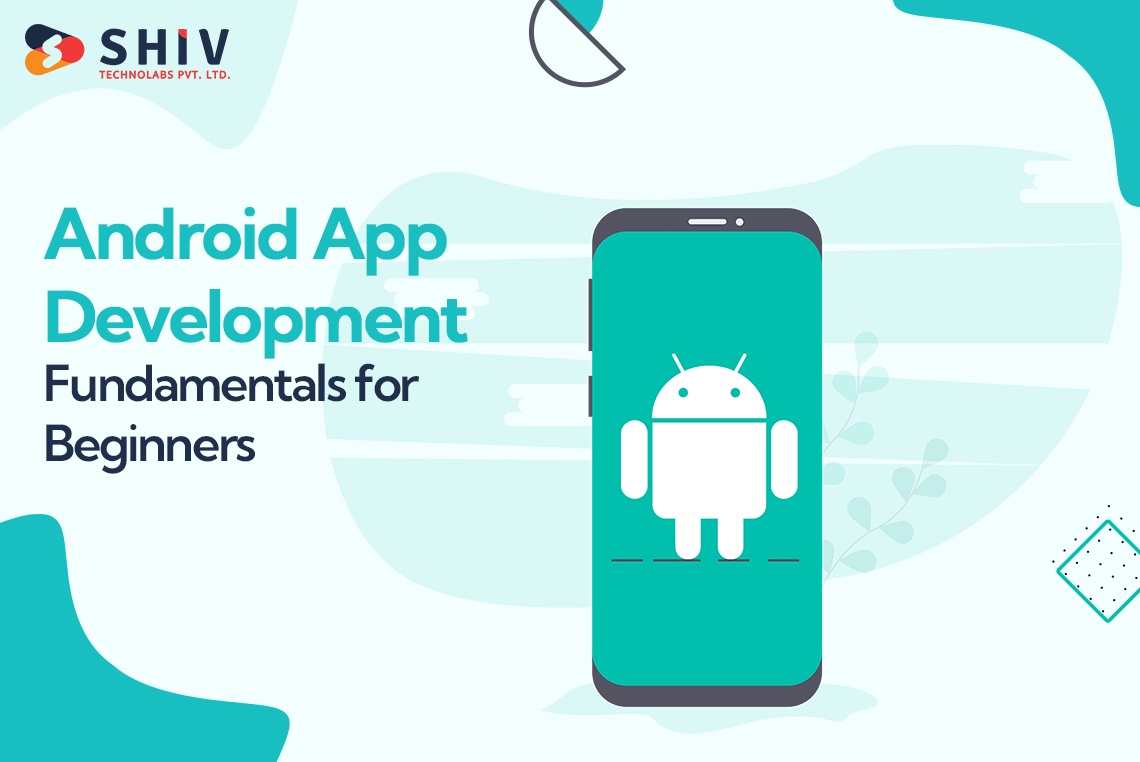Android is an operating system designed primarily for mobile devices. Google created it, which is based on the Linux kernel and other open-source applications. It's common in touchscreen mobile devices like smartphones and tablets. However, they are now employed in Android Auto automobiles, TVs, watches, cameras, and other devices.
Android OS was created by Android Inc., which was acquired by Google in 2005. For these devices to work on Android, various software (apps) such as games, music players, cameras, and so on are developed. The Google Play Store has over 3.3 million applications. The app is created using the Android Studio program. These executable programs are installed through an APK bundle or package (Android Package Kit).
In this android developer guide post, we will study the foundations of android app development fundamentals. We'll look into Android components, essential concepts, and much more. However, before we go into the details of the intricate folders and their significance, let's go over what Android is.
What is Android?
Android is a mobile operating system created by a group of developers (mostly Google and the Open Handset Alliance). The operating system is written in Java (UI), C (Core), C++, and other programming languages.
Android OS is a Unix-like operating system based on a modified Linux kernel. It is intended particularly for mobile devices such as touchscreens, smartphones, and tablets. The first commercial Android smartphone was introduced in September 2008, after it was revealed in November 2007.
Since 2011, Android has been the best-selling smartphone operating system globally, and on tablets since 2013. The operating system currently has over 5 billion monthly active users.
Android Programming Languages
We'll start with the Android programming language because nothing is possible without it. Android apps may be written in one of three different languages. Java, C++, and XML are the three. The back end of the program is developed in Java/C++, while the front end is written in XML markup language. In addition to Java and C++, a new language known as Kotlin has recently gained popularity.
- Java
Java is an object-oriented, class-based programming language. One of the reasons it is favored for Android app development services is because it is built to run with few dependencies. Java is a general-purpose programming language that allows developer to code once and execute anywhere. This implies that Java code that has been compiled can be executed on any platform that supports Java.
- C++
C++ is another programming language that might be used to create applications. C++ is a general-purpose programming language as well. C++ was initially introduced in 1985. The language has undergone several revisions over the years, and current C++ is object-oriented, generic, and functional.
- XML
XML is an extensible markup language that sets standards for encoding texts in a human- and machine-readable manner. XML's design goals include simplicity, universality, and online usability.
- KOTLIN
Kotlin is a cross-platform, general-purpose programming language that is completely compatible with Java. Kotlin initially surfaced in 2011, and Google stated in May 2019 that it is now their preferred programming language for Android app developers. The language is supported by platforms such as:
- Android,
- iOS, macOS,watchOS, tvOS
- Windows,
- Linux
- Javascript
- WebAssembly
- LLVM
Android App Development Fundamentals
Android app development services becomes simple when hire android app developers or app development enthusiasts understand the core ideas underlying app development by android developer guide.
We'll go through the foundations of Android app development services. We will go through the app development components, the language skills necessary, the optimum app layout, and the whole lifespan of the Android application.
Android Components
Consider Android app components to be building blocks for developing Android apps. Each component has a distinct role, and each component has its own life cycle. Some of the components are self-contained, while the others are interconnected. There are four important components that we shall examine in depth.
Activities
Activities are the actions taken by the app when a user interacts with it. It is concerned with user interface and screen interactions. The overall number of actions is determined by the app's functionality. When the app is launched, the first activity is done. As a result, every app conducts at least one action, which is referred to as the "Main Activity."
The activity is carried out in the following ways:
Syntax:
public class MainActivity extends Activity{
// processes
}
Services
The app's background actions are referred to as services. It may be listening to music while using Google Maps to go to your location. The major aim of this component is to ensure that the program runs continuously. To complete the responsibilities, the service may require the assistance of another sub-service.
public class MyServices extends Services{
//code for the services
}
Broadcast receivers
When responding to messages from other applications or systems, a broadcast is utilized. Broadcast receivers receive the broadcast and respond appropriately. When a phone's battery becomes low, the SystemOS sends a broadcast message to start the battery saver, and the app performs the appropriate activities.
Each item is represented by an intent object, and the broadcast receiver is a subclass of BroadcastReceiver. The broadcast is received by the context, and the purpose is the consequence depending on the context.
public class MyReceiver extends BroadcastReceiver{
public void onReceive(context,intent){
}
Content providers
When one application requests data from another, content providers are utilized to send it. The Facebook app, for example, demands access to your contacts and messages. The ContentResolver class handles and manages them.
This class makes use of a collection of APIs (application programming interfaces) that allow other apps to carry out transactions.
public class MyContentProvider extends ContentProvider{
public void onCreate()
{}
}
Conclusion
Start with Shiv Technolabs hire dedicated android app developers if you're new to Android app development services. As a result, understanding the foundations of Android is important. To develop applications, you may utilize either Kotlin or Java, or both at the same time. You must be familiar with the android app development fundamentals and syntax of one or both of these programming languages, as well as the collection system, concurrency and multithreading, generics, and functional programming.


Comments (1)